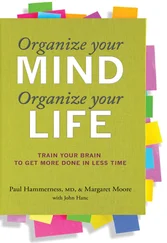My mother, who loves to sing, often sings the songs from her childhood and youth, many of them propaganda from the 1950s and 1960s, but there is one song she has reminisced about all her life because she does not know how to sing it. She learned the song in kindergarten, the year Communism took over her hometown; she can only remember the opening line.
There was an old woman in the hospital who sat in the hallway with a pair of shiny red shoes. I feel like Dorothy, she said as she showed me the shoes, which she had chosen from the donations to patients. Some days her mind was lucid, and she would talk about the red shoes that hurt her feet or the medication that made her brain feel dead and left her body in pain. Other days she talked to the air, an endless conversation with the unseen. People who had abandoned her by going away or dying returned and made her weep.
I often sat next to this lonesome Dorothy. Was I eavesdropping? Perhaps, but her conversation was beyond encroachment. That one could reach a point where the border between public and private language no longer matters is frightening. Much of what one does—to avoid suffering, to seek happiness, to stay healthy—is to keep a safe space for one’s private language. The automatic participation in life, however, can turn that space into a secured tomb. Those who have lost that space have only one language left. My grandmother, according to my mother and her siblings, had become a woman who talked to the unseen before being sent to the asylum to die. There is so much to give up: hope, freedom, dignity. A private language defies any confinement. Death alone can take it away.
—
MANSFIELD SPOKE OF her habit of keeping a journal as “being garrulous…I must say nothing affords me the same relief.” Reading her journals presents a dilemma. Several times she directly addressed the readers—her posterity—in a taunting manner. I would prefer to distrust her. But it would be dishonest not to acknowledge the solace of reading them. Not having the exact language for the bleakness I felt, I devoured her words like thirst-quenching poison. Is it possible that one can be held hostage by someone else’s words? What I underlined and reread: Are they her thoughts or mine?
There is nought to do but WORK, but how can I work when this awful weakness makes even the pen like a walking stick.
There is something profound & terrible in this eternal desire to establish contact.
It is astonishing how violently a big branch shakes when a silly little bird has left it. I expect the bird knows it and feels immensely arrogant.
One only wants to feel sure of another. That’s all.
I realise my faults better than anyone else could realise them. I know exactly where I fail.
Have people, apart from those far away people, ever existed for me? Or have they always failed me, and faded because I denied them reality? Supposing I were to die, as I sit at this table, playing with my indian paper knife—what would be the difference. No difference at all. Then why don’t I commit suicide?
—
WHEN ONE THINKS in an adopted language, one arranges and rearranges words that are neutral, indifferent even, to arrive at a thought that one does not know to be there.
When one remembers in an adopted language, there is a dividing line in that remembrance. What came before could be someone else’s life; it might as well be fiction. Sometimes I think it is this distancing that marks me as coldhearted and selfish. To forget the past is a betrayal, we were taught in school when young; to disown memories is a sin.
What language does one use to feel; or, does one need a language to feel? In the hospital, I visited a class of medical students studying minds and brains. After an interview, the doctor who led the class asked about feelings. I said it was beyond my ability to describe what might as well be indescribable.
If you can be articulate about your thoughts, why can’t you articulate your feelings? asked the doctor.
It took me a year to figure out the answer. It is hard to feel in an adopted language, yet it is impossible to do that in my native language.
—
OFTEN I THINK that writing is a futile effort; so is reading; so is living. Loneliness is the inability to speak with another in one’s private language. That emptiness is filled with public language or romanticized connections. But one must be cautious when assuming meaning. A moment of recognition between two people only highlights the inadequacy of language. What can be spoken does not sustain; what cannot be spoken undermines.
After the dream of the public telephone, I remembered a moment in the army. It was New Year’s Eve, and we were ordered to watch the official celebration on CCTV. Halfway through the program, a girl on duty came and said there was a long-distance call for me.
It was the same type of black rotary we had back at the apartment complex, and my sister was on the phone. It was the first long-distance call I had received in my life. The next time would be four years later, when an American professor phoned to interview me. I still remember the woman, calling from Mount Sinai Hospital in New York City, asking questions about my interests in immunology, talking about her research projects and life in America. My English was good enough for me to understand half of what she said, and the scratching noises in the background made me sweat for the missed half.
Yet what did my sister and I talk about on that New Year’s Eve? In abandoning my native language I have erased myself from that memory. I have often been asked if—or else told that—English allows me the freedom of expression. As if in taking up another language one can become someone new. But erasing does not stop with a new language, and that, my friend, is my sorrow and my selfishness. In speaking and in writing in an adopted language I have not stopped erasing. I have crossed the line, too, from erasing myself to erasing others. I am not the only casualty in this war against myself.
In an ideal world I would prefer to have my mind reserved for thinking, and thinking alone. I dread the moment when a thought trails off and a feeling starts, when one faces the eternal challenge of eluding the void for which one does not have words. To speak when one cannot is to blunder. I have spoken by having written—this book or any book; for myself and against myself. The solace is with the language I chose. The grief, to have spoken at all.
Either/Or: A Chorus of Miscellany
Everything a writer produces is posthumous.
—Kierkegaard,
Either/Or
Once someone followed me across a parking lot after a reading, insisting that I should be not a writer but a stand-up comedian. Once an interviewer told me I was “well mannered” considering how dark some of my characters were. Once someone mentioned to a friend that she had thought I was “a little polite immigrant” and was surprised when I turned out to be “feisty” at an event she attended. Too often people ask why I write about melancholy and loneliness and despondency while I appear to be such a happy person.
Happiness and bleakness are not Orion and Scorpius, unable to occupy the same space in one’s emotional sky. Darkness has little to do with good manners; feistiness is irrelevant to politeness. I never set out to write about melancholy and loneliness and despondency. I keep my self to myself and I do not impose on my characters’ fates; among them I am as private as I am in life. The posthumous reputation of one’s words, truthful or misleading, is a eulogy given by others.
Who is this reader we talk about and start to resent before we even meet him?
—a student from the Iowa Writers’ Workshop
A writer and a reader should never be allowed to meet. They live in different time frames. When a book takes on a life for a reader it is already dead for the writer.
Читать дальше












